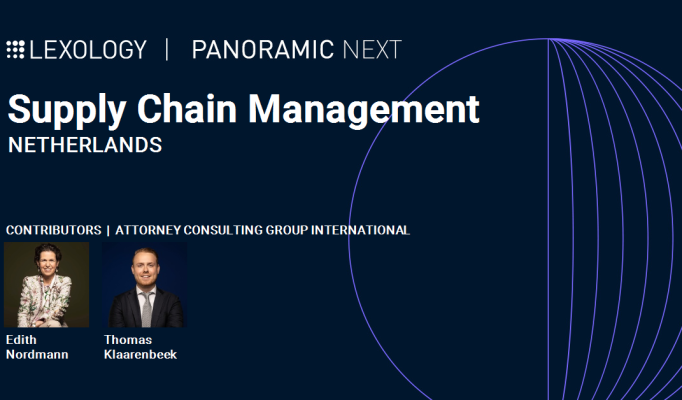Legal and Strategic Perspectives for Employers and the Insurance Sector
By Juliana Nascimento and Edith Nordmann
The blue economy—defined as the sustainable use of ocean resources for economic growth, improved livelihoods, and jobs while preserving the health of marine ecosystems—has become a critical vector in the global sustainability agenda.
If considered a nation, the blue economy would rank as the seventh-largest economy in the world1, contributing an estimated USD 3 to 6 trillion to global GDP and securing livelihoods for hundreds of millions globally.
It also plays a vital environmental role, covering 70% of the Earth’s surface, generating over 50% of the oxygen we breathe, and serving as a substantial carbon sink by absorbing 25–30% of anthropogenic CO₂ emissions.
As this sector expands, so too does the necessity to integrate Environmental, Social, and Governance (ESG) principles to ensure sustainable, equitable, and resilient growth. In Europe, countries like the Netherlands are leading this movement, particularly in sectors such as offshore wind, sustainable aquaculture, and green shipping. However, the transition towards sustainability in the maritime domain brings emerging risks—including operational, cyber, and environmental challenges—especially in maritime transport, a sector historically vulnerable to geopolitical volatility and logistical complexity.
For employers in the maritime and insurance sectors, the integration of ESG principles is not merely a matter of corporate social responsibility but a legal and strategic imperative. The European Union’s regulatory framework, including the FuelEU Maritime Regulation and the extension of the EU Emissions Trading System2 to maritime transport, imposes binding obligations on companies to reduce emissions and enhance sustainability. Non-compliance can lead to significant legal liabilities, financial penalties, and reputational damage.
Employers must adopt comprehensive ESG strategies that encompass environmental stewardship, social responsibility, and robust governance structures.
This includes implementing digital technologies such as the Internet of Things (IoT) and Artificial Intelligence (AI) for real-time monitoring of emissions, predictive maintenance, and optimization of fuel efficiency. Moreover, the adoption of green port initiatives—such as shore power systems, energy-efficient lighting, and waste management practices—can significantly reduce environmental impact and align operations with ESG standards.
Transition
The transition to a sustainable blue economy introduces new categories of risk that employers must proactively manage. Cybersecurity threats are escalating with the rise of autonomous vessels and IoT systems, necessitating tailored cyber insurance policies to mitigate operational vulnerabilities. Environmental risks, including intensified storms and ecological impacts, require innovative insurance solutions such as parametric insurance, which provides coverage triggered by objective data like wind speed or wave height.
The insurance sector plays a pivotal role in supporting the ESG transition by developing customized coverage models that address natural disasters, cyber risks, and environmental damage caused by offshore activities. Insurers are increasingly aligning their portfolios with the International Maritime Organization’s climate goals, providing financial backing for green shipping corridors and low-carbon technologies. This alignment not only safeguards operations but also facilitates access to sustainable financing and investment opportunities.
A critical component of ESG integration is the emphasis on workforce development and social responsibility.
Employers must invest in training programs that equip employees with the skills necessary to operate and maintain decarbonization technologies, ensuring compliance with international standards and enhancing workforce capabilities. Additionally, promoting decent working conditions, mental health support, and occupational safety aligns with ESG’s social pillar and contributes to employee satisfaction and retention.
The integration of ESG principles opens avenues for investment in sustainable initiatives. Impact investing in marine sanctuaries, hybrid vessels, and decarbonized ports demonstrates a commitment to sustainability while unlocking new revenue streams. Collaboration with financial institutions to secure green financing ensures the long-term viability of these initiatives and compliance with regulatory demands.
B20 & G20 Summits
The B20 and G20 summits in Brazil in 2024 have underscored the importance of integrating ESG principles into the blue economy and maritime sector. The B20 Brazil summit emphasized ‘Inclusive Growth for a Sustainable Future,’ advocating for policies that promote sustainable development, digital transformation, and energy transition. The G20 Sustainable Finance Working Group published the 2024 G20 Sustainable Finance Report3, which provides high-level principles for credible, robust, and just transition plans for financial institutions and corporations. These principles include clear articulation of climate goals, implementation strategies, governance and risk management, engagement with value chains, and transparency and disclosure. The report also highlights the importance of considering the social dimension of transitions, ensuring that the shift to low-GHG economies is equitable and inclusive.
The integration of ESG principles into the blue economy and maritime transport sector is a multifaceted endeavor that encompasses legal compliance, risk management, workforce development, and investment strategies. Employers must navigate an evolving regulatory landscape, address emerging risks, and capitalize on opportunities for sustainable growth. The insurance sector serves as a strategic partner in this transition, offering innovative solutions that mitigate risks and support ESG-aligned initiatives. By embracing ESG integration, employers can contribute to a resilient and sustainable maritime industry that aligns with global efforts to combat climate change and promote inclusive economic development.
Juliana Nascimento is a senior executive, lawyer, author, and professor with over 20 years of experience in the corporate sector, including 12 years in leadership roles across Governance, Risk Management, Compliance, and ESG. She holds a Master’s degree in International Business Law from Steinbeis University Berlin ( Germany) and has developed a solid career with Big Four firms and multinational companies. Juliana is a member of the International Chamber of Commerce – ICC and co-founder of the Compliance Women Committee (CWC), a global network of women leaders in GRC.
Edith Nordmann is Managing Partner at ACG International, a corporate law firm in Amsterdam, and Chairman of the Netherlands India Chamber of Commerce and Trade (NICCT).
A seasoned corporate and commercial litigator, Edith advises companies and individuals in complex legal matters, including cross-border transactions, contract disputes, and employment law. She also acts as a certified mediator and arbitrator, helping clients resolve disputes efficiently.
Fluent in five languages, she is uniquely positioned to navigate international legal and cultural challenges. Edith regularly mentors young professionals and lectures at universities across Europe and India. She is an active member of the B20 Task Force under South Africa’s 2025 G20 Presidency, following previous roles in the B20 under India and Brazil.
References
- World Bank. (2023). Oceans, Fisheries and Coastal Economies.
- United Nations. (2024). Sustainable Development Goal 14: Life Below Water.
- UNESCO-IOC. (2024). Ocean Science for Sustainable Development.
- Matušovičová, M., & Matušovičová, S. (2024). Current Global ESG Investment Products and Their Performance Implications.
- Baihaqie, A., & Susilastuty, D. (2024). Implications of Technological Transformation in Maritime Transportation on Optimizing the Blue Economy.
- EIOPA. (2023a). Impact Underwriting – Report on Climate-Related Adaptation in Non-Life Underwriting.
- EIOPA. (2023b). Consultation Paper on the Prudential Treatment of Sustainability Risks.
- European Commission. (2021). Sustainability Criteria for the Blue Economy.
- Oceanogami. (2023). Unlocking the Sustainable Blue Economy: How Businesses Can Make a Positive Impact on the Environment.
- Safety4Sea. (2023). Why ESG Matters for the Maritime Industry.
- Marine Digital. (2023). ESG in Maritime Logistics.
- CSE Network. (2023). The Role of ESG in Shipping Finance and Industry Transformation.
- European Environment Agency. (2023). EU Maritime Transport and Environmental Policy.
- Atrium Marine. (2023). Marine Decarbonisation Whitepaper.
- G20 Sustainable Finance Working Group. (2024). 2024 G20 Sustainable Finance Report. https://g20sfwg.org/wp-content/uploads/2024/10/2024-G20-Sustainable-Finance-Report.pdf
Footnotes
1. World Bank. (2023). Oceans, Fisheries and Coastal Economies.
2. European Environment Agency. (2023). EU Maritime Transport and Environmental Policy.
3. G20 Sustainable Finance Working Group. (2024). 2024 G20 Sustainable Finance Report. https://g20sfwg.org/wp-content/uploads/2024/10/2024-G20-Sustainable-Finance-Report.pdf


